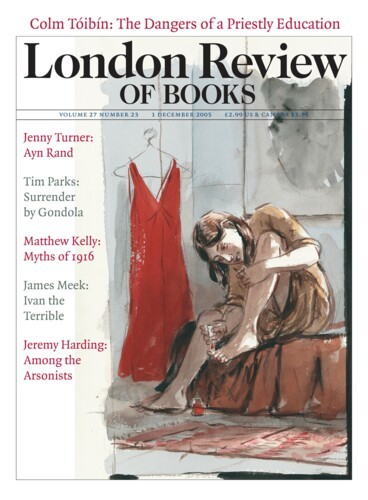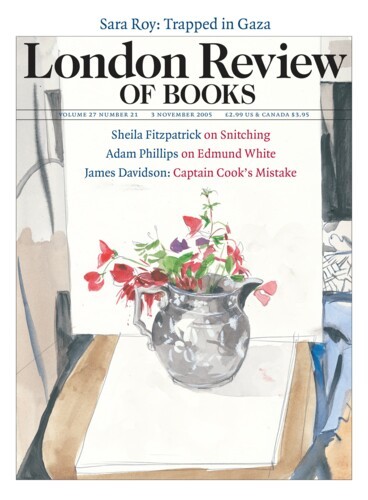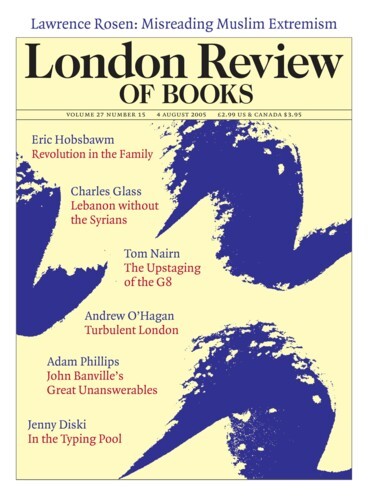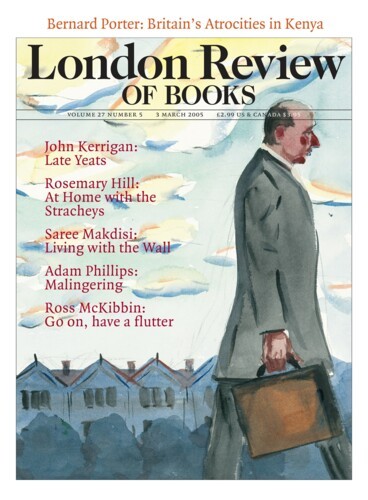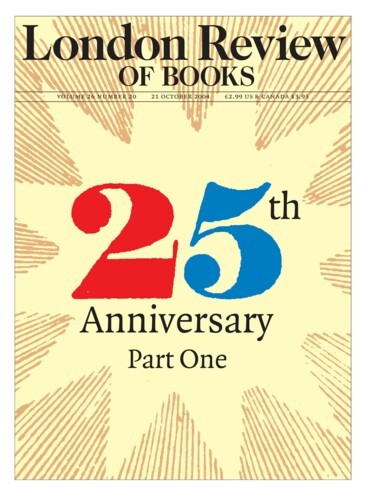Remember me: Bret Easton Ellis
Adam Phillips, 1 December 2005
Bret Easton Ellis has always been interested in the ways in which people don’t pay attention, and in the cost of attention when it is paid. In the comédie humaine he has been writing since 1985, when his first novel, Less than Zero, was published, his characters, who recur throughout the books, are as torpid and enervated as Balzac’s are driven and determined. Balzac’s heroes and heroines – and indeed his minor characters – always want to make their presence felt; hope makes them demonic. Ellis’s characters, by contrast, are always trying to absent themselves from their own and other people’s lives. They are bizarre and clever and deadpan witty, but these are the ways they have of curing themselves of hope, of nipping it in the bud. American Psycho (1991), in many ways Ellis’s subtlest novel, begins with the words ‘Abandon All Hope Ye Who Enter Here,’ ‘scrawled in blood-red lettering on the side of the Chemical Bank’.
